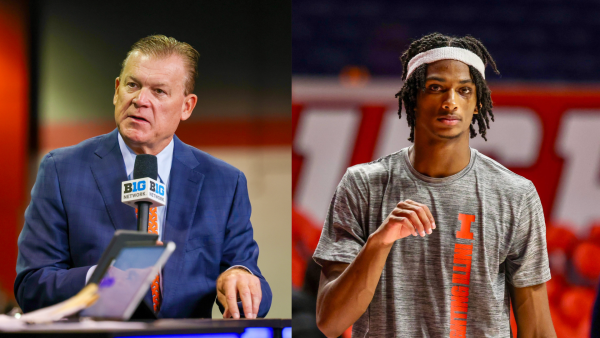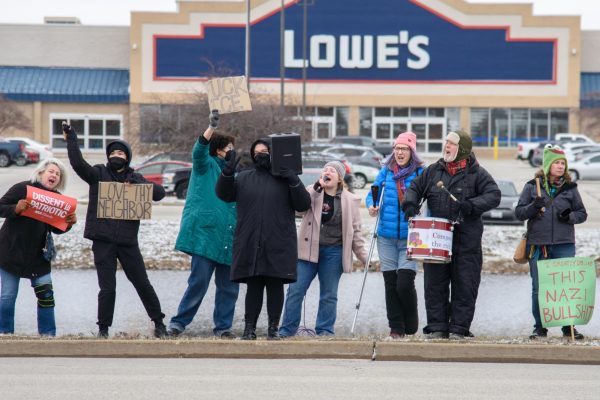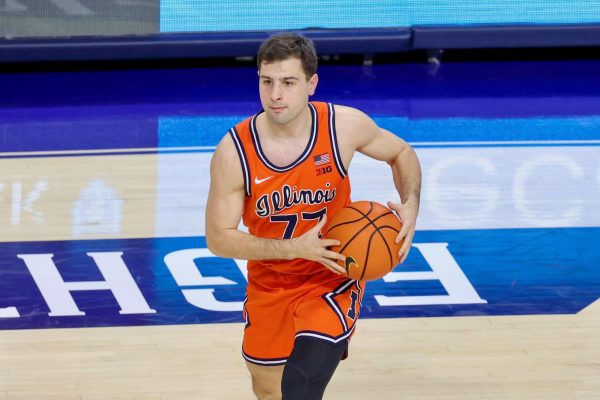Iraqis rejoice over soccer victory, a temporary triumph over despair
Jul 30, 2007
Last updated on May 12, 2016 at 02:03 p.m.
BAGHDAD – Tens of thousands of Iraqis from the Shiite south to the Kurdish-dominated north poured into the usually treacherous streets Sunday to celebrate a rare moment of joy and unity when the national team won Asia’s most prestigious soccer tournament.
The revelers spanning the country’s sectarian and ethnic divisions danced, sang and waved flags and posters of the team after Iraq beat three-time champion Saudi Arabia 1-0 to take the Asian Cup.
Chants of “Long live Iraq” and “Baghdad is victorious” rang out across the country as Iraqis basked in national pride. Some of the revelers _ mostly men – took their shirts off to display the red, white and black colors of the Iraqi flag painted on their chests.
Reporters of the state Iraqiya television wrapped themselves with the national flag as they interviewed people celebrating in the streets. Some joined in the chanting.
Get The Daily Illini in your inbox!
Within seconds of the final whistle, celebratory gunfire echoed across Baghdad and elsewhere despite a government ban and the threat of arrest by authorities.
At least four people were killed and scores wounded by the gunfire. But as night fell on the country, there were no reports of bombings such as those that killed at least 50 and wounded dozens in Baghdad during celebrations of Iraq’s semifinal win over South Korea on Wednesday.
Authorities said they foiled a potential car bomber in southwestern Baghdad after he refused to stop at a checkpoint and appeared headed toward a crowd of revelers. Iraqi authorities had banned vehicles in and around the capital from shortly before the game began until early Monday to prevent a repeat of last week’s violence.
“The victory of our Iraqi soccer team is a wonderful gift to Iraqis who have been suffering from the killing, car bombs, abductions and other violent acts,” said Falah Ibrahim, a 44-year-old resident of Baghdad’s predominantly Shiite Sadr City district.
Sunday’s dramatic win capped a three-week campaign by Iraqi team, nicknamed “The Lions of the Two Rivers.” Iraqis were captivated and spoke of hope, even as years of violence and sectarian strife have many asking if ethnically and religiously divided Iraq can survive as one nation.
The team’s players do not live in Iraq and earn their wages playing for teams across the Middle East. Because of tenuous security at home, wars and U.N. sanctions, the team had not played a home game in 17 years and must train and practice abroad.
“We are celebrating because this team represents all Iraqi sects,” said Awas Khalid, one of the thousands of Kurds who celebrated the win in the city of Sulaimaniyah in the Kurdish north, where secessionist sentiment has been on the rise.
“This team is for everyone,” Khalid said, as revelers around him waved Iraqi and Kurdish flags and chanted “Baghdad is victorious” in Arabic instead of their native Kurdish language.
The mixed makeup of the winning national team was interpreted by many Iraqis as proof that politicians are more concerned with their narrow sectarian agendas than national interest, thus preventing reconciliation among rival factions.
“The politicians have divided us and these athletes united us,” said 24-year-old Shiite Tareq Yassin, taking a break from dancing with hundreds of people in the streets of Amin, a southeastern Baghdad neighborhood. “I am usually very shy. Today, I forgot my shyness and everything else and I could only think of Iraq.”
Prime Minister Nouri al-Maliki tried to use the team’s success to shore up support for his embattled government.
During Sunday’s final, state television reported that he would reward every player with a $10,000 bonus. Soon after the final whistle, the station reported that al-Maliki was congratulating team members on the telephone. But live coverage showed the entire squad celebrating on the pitch.
Al-Maliki later issued a statement on the team’s win in flowery Arabic.
“There is a big difference between The Lions of the Two Rivers who struggle to put a smile on the faces of their people and those who work in dark corners strewing death and sorrow in the paths of innocent people. We are proud of you. You deserve all our love and respect,” it said.
President Jalal Talabani, a Kurd, ordered an additional $10,000 reward for the players and twice that for Sunday’s goal scorer Younis Mahmoud, a Sunni Arab, who scored on a pass from Mulla Mohammed, the team’s only Kurdish player.
Even Iraq’s squabbling political factions set aside their disputes, if only temporarily.
The largest Sunni Arab bloc said it would delay a planned response in its war of words with the Shiite-dominated government to avoid poisoning the joyous atmosphere.
The Accordance Front has suspended its membership in al-Maliki’s government and threatened to quit altogether this week if the prime minister does not meet certain demands. The government said the move amounted to blackmail and that the Sunni bloc had helped create some of the very policies it now criticized.
Accordance Front spokesman Salim Abdullah said his group would issue a reply on Monday “because we don’t want anything to spoil the day’s joy for the people of Iraq.”
Its demands include a pardon for security detainees not charged with specific crimes, a firm commitment by the government to uphold human rights, the disbanding of militias and the inclusion of all parties as the government deals with Iraq’s chaotic security environment.
Most of the team’s other players are Shiites, and Shiites back home had lightheartedly dubbed Sunday’s game against the Sunni-dominated Saudis an “Ali vs Omar” encounter. That played on the belief among some Shiites that Omar Ibn al-Khatab, the second Muslim caliphate, usurped power from Ali Ibn Abi-Taleb, a cousin of the 7th century Prophet Muhammad and Shiism’s most revered saint.
But any links between the soccer game and Iraq’s sectarian violence Sunday remained largely tenuous, with national pride, joy and hope the overwhelming sentiments.
In northern Iraq, gunmen opened fire on shoppers in a Shiite Turkomen village near the oil-rich city of Kirkuk, killing seven people and wounding six, police said.
Two U.S. soldiers also were killed – one by small-arms fire north of Baghdad and another in fighting in an eastern section of the capital, the military said.
In Najaf, the Shiite holy city south of Baghdad, 31-year-old teacher Mohammed Hussein said that Sunday’s joy would be short-lived.
“The Iraqi team has brought joy and victory,” he said. “We are happy, but this will not last long because the politicians will bring us back to disputes and sadness tomorrow.”





